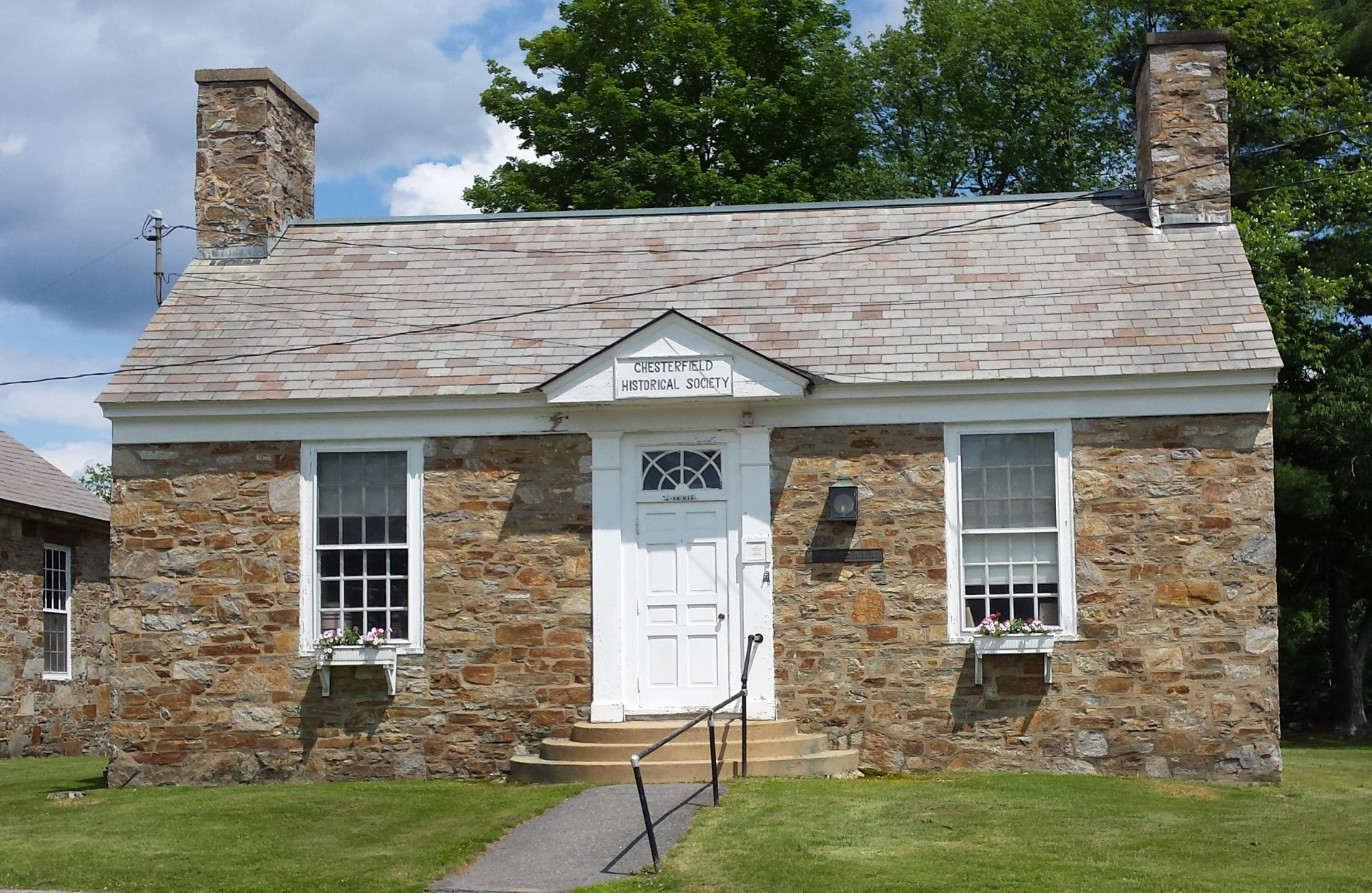New Hampshire's War with Vermont
Chesterfield's Role in the New Hampshire Land Grant Controversy
With both NY and NH laying claim to the land now known as Vermont, land grants were issued by both provinces. This action resulted in conflicts, sometimes deadly, among the settlers. After NY won the legal battle, NH granted settlers, citing persecution from NY, declared themselves free from Great Britain’s rule and established the Republic of Vermont in 1777. Seventeen towns on the east side of the Connecticut River asked to join the new republic. After all, they had more in common with Vermont than the far away New Hampshire legislature.
Things got more complicated when MA laid claim to some of the disputed lands. Eventually, NY and NH applied to the Continental Congress for boundary clarification.
VT also sent in a request, citing its boundaries included West Union, the NH towns along the east side of the Connecticut River. It reasoned that those towns were technically part of the NH Land Grants as defined by the NH legislature and those towns had requested to join VT.
The year 1781 proved tumultuous for Chesterfield. On March 29th, the town voted 90-32 to join Vermont. In May, officials were elected and pledged allegiance to the County of Washington, Vermont. Chesterfield had seceded from New Hampshire!
But the separation didn't proceed quietly. In August, 80 men signed a petition stating that the secession was illegal. Frequent conflicts of jurisdiction among the townsfolk occurred which resulted in two sets of town records, VT and NH. Finally, the Continental Congress decided that one of the requirements for Vermont’s statehood would be relinquishing claim to the West Union. Vermont refused!
By November, the situation hit a crisis point. In Chesterfield, a VT appointed official and some associates had an altercation with Nathaniel Bingham and John Grandy. Justice of the Peace, Samuel King, on the authority of VT, sent both men to jail in Charlestown.
There, Bingham and Grandy petitioned the NH General Assembly for release. NH Cheshire County’s Sheriff Hale was ordered to release all prisoners held in the Charlestown jail. Upon arrival, however, Sheriff Hale was arrested for attempting a jail break. This led to both New Hampshire and Vermont considering military action.
In December, attempting to resolve the situation, Vermont sent an emissary to Exeter, NH. He was immediately arrested and imprisoned. Then, on NH orders, Chesterfield’s Samuel King, along with several other pro-Vermont men, were arrested and ordered sent to Exeter. They had only traveled 20 miles, when a group of anti-New Hampshire men freed them. When King's party return to Chesterfield, they, after “proper refreshment”, attacked local pro-New Hampshire sympathizers and terrorized others to the point that they fled their homes.

In early January 1782, NH government resolved to raise 1,000 men and send an armed force to the western part of the State.
In stepped General Washington, who sent a letter to Vermont's Gov. Chittenden, imploring him to accept Congress’ terms as the current events “rather diminished than increased your friends”. On Feb. 23th, the Assembly of Vermont accepted the boundaries prescribed by Congress and relinquished its claims to the West Union towns in New Hampshire.
Anti-New Hampshire sentiment didn’t die fast. Besides internal conflicts, several West Union towns refused to pay revenues to Exeter. When military assistance was requested to collect taxes in Chesterfield, it was deemed too dangerous. Some say the animosity between neighbors lasted for 100 years.





